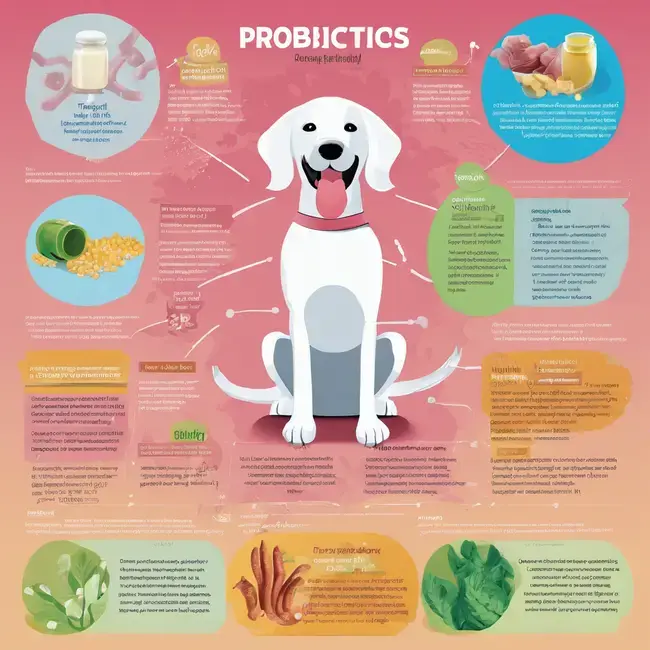Can Dogs Eat Acorns? Discover 7 Risks of Acorns For Dogs

- Can Dogs Eat Acorns?
- Are Acorns Poisonous to Dogs?
- What Happens If a Dog Eats Acorns?
- Symptoms of Acorn Poisoning in Dogs
- Health Risks and Dangers of Dogs Eating Acorns
- What to Do If Your Dog Eats an Acorn
- Home Remedies for Treating a Dog Who Ate Acorns
- Preventing Dogs from Eating Acorns
- Other Common Foods That Dogs Should Avoid
- Safe Foods for Dogs to Eat
- Conclusion
- FAQS
- Resources
This post may contain affiliate links, meaning I may earn a commission if you make a purchase, at no extra cost to you. I only recommend products I trust. Thank you for your support.
Acorns are a common sight in many areas, and it’s natural for curious dogs to be drawn to these small, nut-like fruits.
As autumn arrives, the ground becomes littered with fallen acorns, tempting many dogs to investigate and potentially consume these small nuts.
This raises an important question for pet owners: can dogs eat acorns? or are acorns safe for dogs to eat?
In this article, we shall provide you with reasons why acorns are dangerous for dogs, the symptoms of acorn poisoning, what to do if your dog eats acorns, and how to prevent your dog from consuming them.
Can Dogs Eat Acorns?
No, dogs should not eat acorns. Acorns contain tannic acid, which can be toxic to dogs and cause a range of health issues, including gastrointestinal upset, kidney damage, and neurological problems.
Acorns are the fruit of oak trees, and they contain tannins, a type of polyphenolic compound, which can be toxic to dogs if ingested in large quantities.
While the level of toxicity can vary depending on the type of oak and the size of the acorn, it’s generally recommended to avoid feeding acorns to dogs altogether.

Are Acorns Poisonous to Dogs?
Yes, acorns are poisonous for dogs to eat. The tannic acid present in acorns can cause a range of health issues for dogs.
Approximately 75% of dogs show poisoning symptoms after ingesting acorns, primarily affecting the stomach, kidneys, and liver.
What Happens If a Dog Eats Acorns?
If a dog eats an acorn, they may experience symptoms such as vomiting, diarrhea, abdominal pain, loss of appetite, lethargy, increased thirst and urination, pale or yellow gums, seizures, and even coma.
The severity of the symptoms will depend on the amount of acorns consumed and the size of the dog.
Symptoms of Acorn Poisoning in Dogs
Recognizing the symptoms of acorn poisoning in dogs is crucial for pet owners. Early detection and treatment can significantly improve the prognosis.
It’s important to note that the severity of the symptoms can vary depending on the amount of acorns consumed and the size of the dog.
Common symptoms of acorn poisoning in dogs include:
- Vomiting and Diarrhea: These are the most immediate signs that your dog may have ingested something harmful.
- Abdominal Pain: Dogs may exhibit signs of discomfort, such as whimpering, restlessness, or adopting a hunched posture.
- Lethargy: A sudden decrease in activity levels can indicate that your dog is not feeling well.
- Loss of Appetite: If your dog refuses to eat, it could be a sign of gastrointestinal distress.
- Excessive Drooling: This can be a response to nausea or oral irritation.
- Dehydration: Vomiting and diarrhea can quickly lead to dehydration, characterized by dry gums, sunken eyes, and lethargy.
- Fatigue: Dogs may appear unusually tired, lethargic, and unwilling to engage in normal activities.
- Shaking: This can manifest as trembling or shivering, indicating physical discomfort or distress.
- Bloody Stool or Vomit: The presence of blood in vomit or stool is a serious symptom that requires immediate veterinary attention.
- Red, Itchy Skin: Allergic reactions or irritation from acorns may cause the skin to become red, inflamed, or itchy.
- Kidney Damage: This may lead to changes in a dog’s drinking and urination patterns, such as increased or decreased urination, excessive thirst, or changes in the color or odor of the urine.
- Liver Damage: Liver damage can manifest as confusion, lack of coordination, or jaundice, which is characterized by yellowing of the skin, gums, or eyes.
- Polyuria (Excessive Need to Urinate): Dogs may urinate more frequently or in larger amounts than normal.
Health Risks and Dangers of Dogs Eating Acorns
The potential risks and dangers associated with dogs eating acorns are multifaceted and include both toxicity and physical hazards.
Here’s a detailed breakdown:
1. Tannin Toxicity
- The tannins present in acorns can lead to gastrointestinal distress in dogs and potentially more severe effects such as kidney or liver damage.
2. Choking hazard
- Acorns are small, hard, and round, making them a potential choking hazard. It can become lodged in the throat, leading to choking and possible asphyxiation.
3. Intestinal blockages
- If a large number of acorns are consumed, they can cause intestinal blockages, which can be life threatening.
4. Dental damage
- Chewing on the hard shell of an acorn can cause fractures or breaks in a dog’s teeth, which can be painful and may require veterinary dental care.
5. Intestinal perforations
- In some cases, acorns can cause perforations or punctures in the digestive tract, leading to serious internal injuries.
6. Esophageal Obstruction
- Swallowing an acorn whole can cause an obstruction in the esophagus, leading to difficulty swallowing, drooling, and regurgitation.
7. Mycotoxin Poisoning
- An acorn lying on the ground for an extended period can become moldy and can lead to neurological issues such as tremors, seizures, and disorientation if ingested.

What to Do If Your Dog Eats an Acorn
If you suspect your dog has eaten an acorn, it’s essential to act quickly.
Here’s what you should do:
- Remove any remaining acorns from your dog’s reach and environment.
- Contact your veterinarian immediately, even if your dog doesn’t appear to be showing any symptoms. They can provide guidance on the appropriate course of action.
- Observe your dog closely for any signs of distress, such as vomiting, diarrhea, or lethargy.
- If your dog is experiencing severe symptoms, such as seizures or difficulty breathing, seek emergency veterinary care immediately.
Home Remedies for Treating a Dog Who Ate Acorns
While it’s always best to consult a veterinarian, there are some home remedies that may help in the treatment for dog who ate acorns:
Here is possible treatment for dog who ate acorns home remedies:
- Activated charcoal: Giving your dog activated charcoal can help absorb toxins and minimize the effects of acorn poisoning.
- Provide plenty of water: Encourage your dog to drink plenty of water to help flush out the toxins.
- Offer a bland diet: Feeding your dog a bland, easily digestible diet, such as boiled chicken and rice, can help settle their stomach.
- Avoid inducing vomiting: Do not try to induce vomiting unless instructed by a veterinarian, as this can further damage the digestive system.
Preventing Dogs from Eating Acorns
The best way to keep your dog safe from acorn poisoning is to prevent them from accessing and consuming acorns in the first place.
Here are some tips to help prevent your dog from eating acorns:
- Regularly clean up fallen acorns to reduce the risk of your dog finding and eating them and dispose of them in a way that your dog cannot access them, such as in a sealed trash bag or covered compost bin.
- Supervise your dog when they are outside, especially in areas where oak trees are present.
- Train your dog to avoid and drop acorns through positive reinforcement techniques such as training your dog to respond to commands like “leave it” or “drop it.”
- Consider fencing off areas where oak trees are located to restrict your dog’s access.
- Use deterrents, such as bitter sprays or motion-activated devices, to discourage your dog from approaching any acorn.
- Keep your dog on a leash during walks, especially in areas with oak trees.
- To prevent your dog from eating acorn, you can keep them on a lead or use a basket muzzle when going for walks, particularly in areas with oak trees.
Other Common Foods That Dogs Should Avoid
In addition to acorns, there are several other common foods that can be harmful to dogs.
Here are 10 other foods that dogs should avoid:
- Chocolate: Contains theobromine and caffeine, which can cause vomiting, diarrhea, rapid breathing, and even seizures in dogs.
- Onions and Garlic: Contains compounds that can damage red blood cells, leading to anemia and gastrointestinal upset.
- Grapes and Raisins: Can cause kidney failure in dogs, leading to vomiting, lethargy, and loss of appetite.
- Xylitol: Found in sugar-free gum, candies, and some baked goods, it can cause a rapid release of insulin in dogs, resulting in low blood sugar and liver failure.
- Alcohol and Caffeine: Can cause vomiting, diarrhea, difficulty breathing, and even death in dogs due to their toxic effects on the nervous system.
- Macadamia Nuts: Can lead to weakness, vomiting, tremors, and hyperthermia in dogs.
- Cooked Bones: Can splinter and cause internal injury or obstruction in dogs’ digestive systems.
- Raw Dough: Can expand in a dog’s stomach, causing bloating and discomfort, and the yeast can produce alcohol, leading to alcohol poisoning.
- Moldy or Spoiled Foods: Can contain toxins that cause various symptoms such as tremors, seizures, and vomiting in dogs.
- Fatty Foods: This can lead to pancreatitis in dogs, causing vomiting, diarrhea, and abdominal pain.
Safe Foods for Dogs to Eat
While it’s essential to avoid feeding your dog acorns and other potentially harmful foods, there are many healthy and safe options that can be included in your dog’s diet.
Here are some examples of safe foods for dogs:
- Rice: A bland, easily digestible carbohydrate that can help settle an upset stomach.
- Peas: A good source of fiber, vitamins, and minerals.
- Pineapple: Contains bromelain, an enzyme that can aid digestion.
- Celery: A crunchy, low-calorie treat that can help clean teeth.
- Cauliflower: A nutrient-dense vegetable that can be a healthy addition to your dog’s diet.
- Shrimp: A lean protein that is safe for dogs in moderation.
- Cantaloupe: A refreshing, hydrating fruit that is high in vitamins and antioxidants.
- Bananas: A sweet, potassium-rich fruit that can be a tasty treat for dogs.
- Broccoli: A nutrient-packed vegetable that can be a healthy addition to your dog’s meals.
- Avocado: A source of healthy fats, but should be fed in moderation due to the potential for toxicity.
Conclusion
While acorns might seem like a harmless part of nature, they pose significant risks to dogs due to their tannin content and potential for causing physical injury.
As a responsible pet owner, it is crucial to be aware of these dangers and take proactive steps to prevent your dog from consuming acorns.
By understanding the symptoms of acorn poisoning, knowing how to respond if your dog ingests acorns, and implementing preventive measures, you can help keep your furry friend safe and healthy.
Remember, when in doubt, always consult with your veterinarian to ensure the best care for your pet.
FAQS
How long does it take for a dog to get sick from eating an acorn?
Dogs can experience symptoms of acorn poisoning within a few hours of ingestion. These symptoms may include loss of appetite, vomiting, diarrhea, abdominal pain, dehydration, and shock.
What should I do if my dog ate an acorn?
If you suspect your dog has eaten an acorn, If your dog has eaten an acorn, it’s important to monitor for any symptoms of distress or poisoning and contact your veterinarian immediately, even if your dog doesn’t appear to be showing any symptoms.
They can guide the appropriate course of action, which may include inducing vomiting, administering activated charcoal, or providing supportive care.
Can acorns be fatal to dogs?
Yes, acorns can be fatal to dogs if consumed in large quantities or if the poisoning is not treated promptly.
The tannic acid in an acorn an cause severe damage to the digestive system, kidneys, and liver, which can lead to life-threatening complications.
Are all acorns poisonous to dogs?
Yes, all acorns contain varying levels of tannic acid, which can be toxic to dogs. The level of toxicity may differ slightly between different oak tree species, but it’s best to avoid feeding any type of acorn to your dog.
What is tannin toxicity in dogs?
Tannin toxicity in dogs refers to the harmful effects caused by the ingestion of tannins, which are natural compounds found in various plants, including acorn and oak trees.
The tannins can irritate a dog’s digestive system, leading to gastrointestinal distress and potentially more severe effects such as kidney or liver damage.




